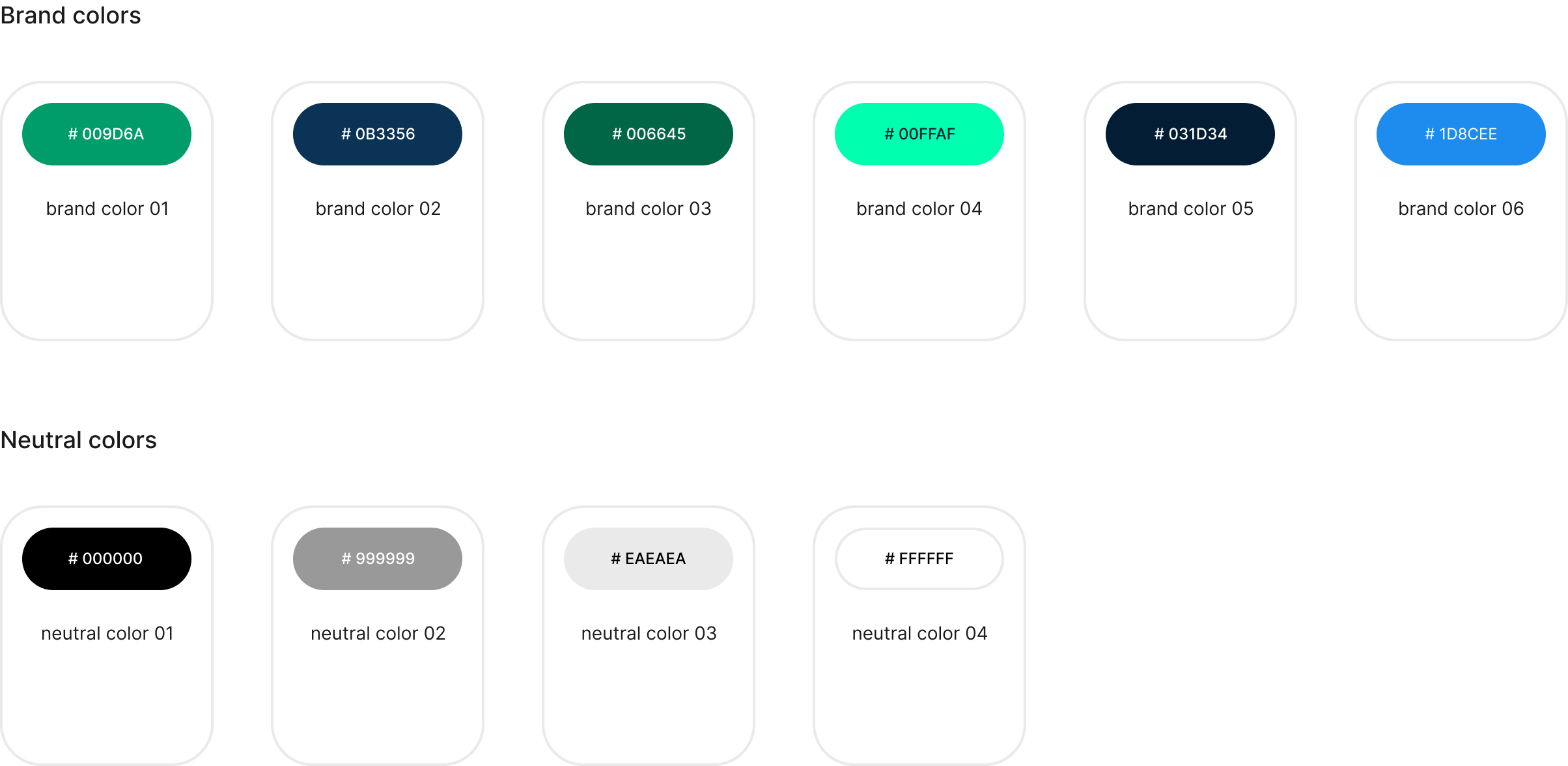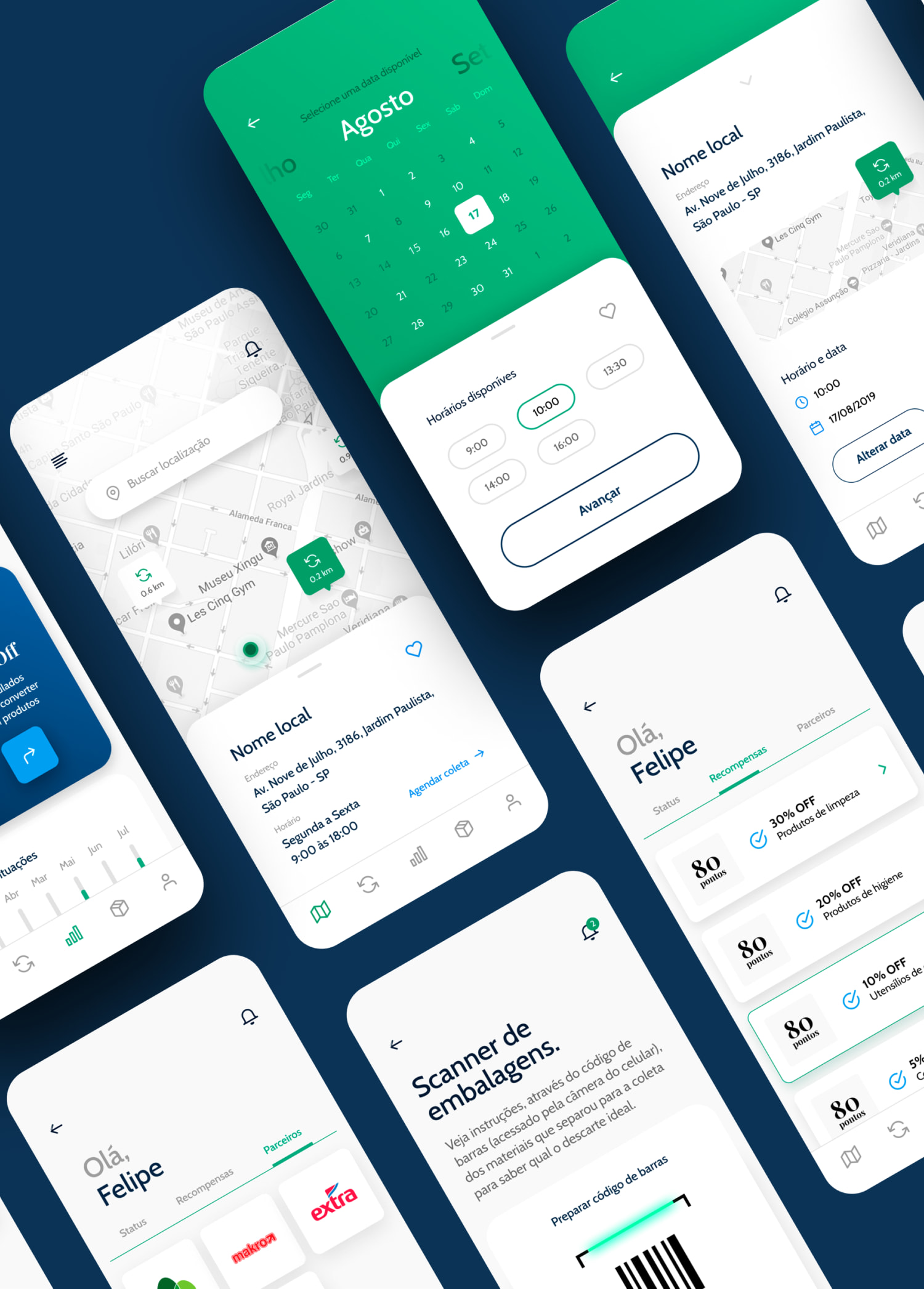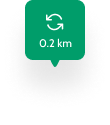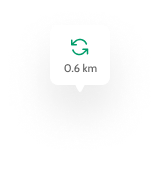Recycling practicies
Be.Cycle
About
Be.Cycle is an application that offers a rewards program for people who want to follow best recycling practices but still have questions about recycling.
It connects the user to a recycling Coop in order to increase recycling pick up and sustainability. It allows access to content about recycling awareness, helping people to see more value in recycling.
Project
Client: Case Study
Role: Product Designer
Year: 2019
Challenge
- 1. Create a rewards program for Be.Cycle to be able to engage and retain users
- 2. Provide significant incentives for users to share the tool with acquaintances or residents in the neighborhood.
- 3. Awareness about the importance of recycling in large cities and what the economic and social impact is.
- 4. Express, through an imaginary brand, the relationship between the rewards and the proposal of awareness.
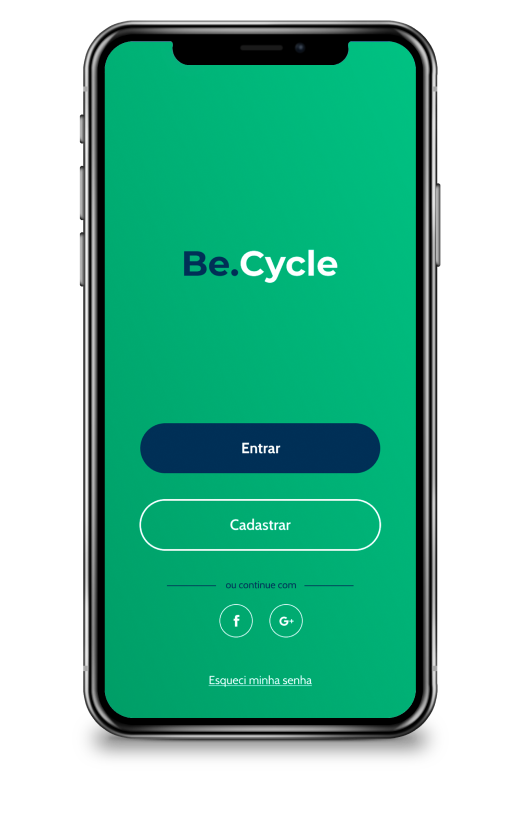
My Role
I worked on UI and UX aspects of this project. I also received constructive feedback from three other fellow designers to improve and get more perspectives on what I was designing.
Main tasks
01.
Insights and ideas from users.
02.
Build the vision of the project.
03.
Build the vision of the project.
04.
Experience and user interface.
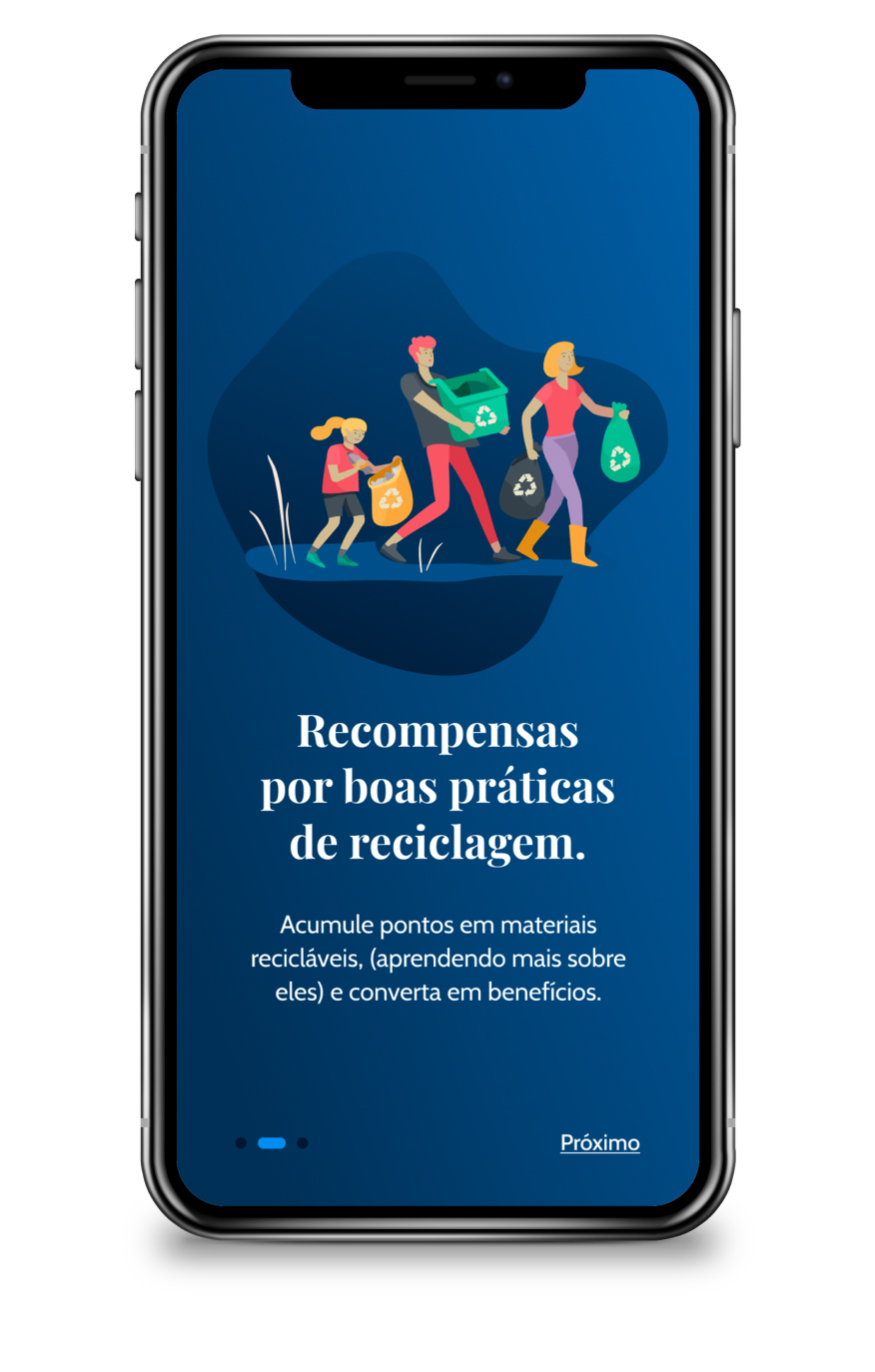
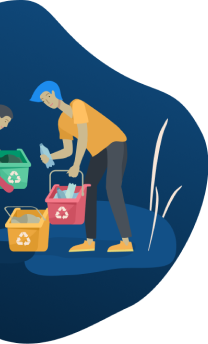
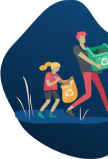
Onboarding
The App's value proposition needs to be easily understood and quickly by users. It is a program for awareness and rewards for good recycling practices.
The user, in addition to learning how to separate recyclable materials, converts their points into products or benefits.
Target Audience
01.
Couples who frequently order takeout during the week and thus accumulate a lot of recyclable materials.
02.
Young people who want to start a recycling routine.
03.
People who casually separate recyclable materials, but have questions about how and where to make it available.
User Pains
-
They don't know where they can start recycling. They think they need to do all the steps at once.
-
They have a very busy routine between work and college.
-
They find it difficult to find practical information on recycling.
-
They do not see value in recycling (“… what is the use of recycling, if most do not do it?”).
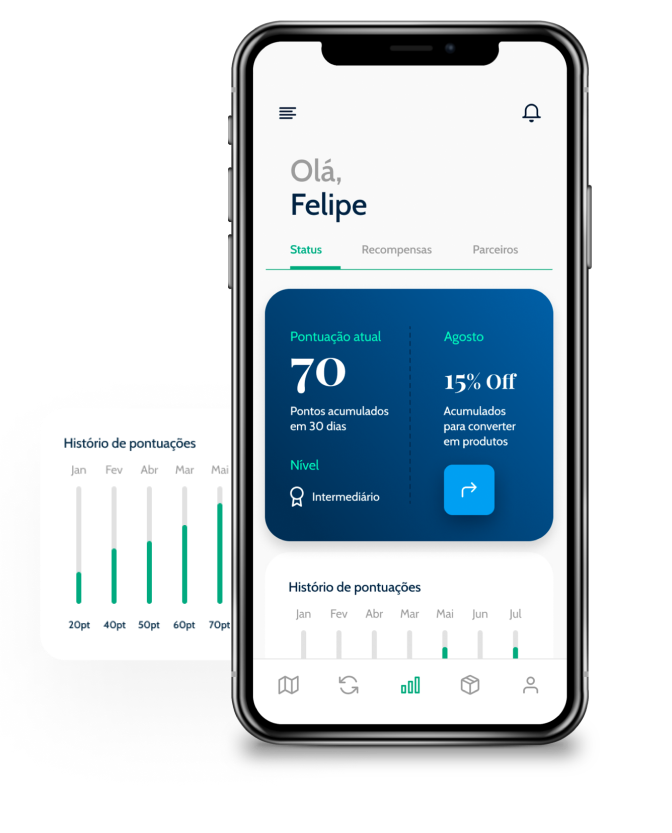
Dashboard
The user monitors his score status (linked to the current month), gets access to the history of accumulated scores.
You can navigate to the rewards, partners page. Also your level of engagement with the App has already been viewed.
Design Process
The first stage of the Design process involved interviews with 10 users (neighborhood residents and acquaintances). I considered that the users' main pains were already identified, so I decided to focus my questions on values and improvements to obtain more information.
I considered people who already recycle and people who are interested, but do not yet recycle (for a number of reasons). I researched competitors and social data of the Brazilian population in general about the environmental issue.
I believe that it is important to obtain this information at the beginning of the process before having an idea or prototyping. After analyzing and concluding the main aspects, I started to conceptualize a solution. I considered user and wireframe flows to start creating and understanding what could be feasible to develop.
I started working on the user interface next, taking into account design principles such as hierarchy, identity, consistency, accessibility, etc.
OBS: Although it’s part of my design process, Validation would come after Concept and User Interface. However, I will not develop this step further due to time restrictions for the test / case.

Interviewed Audience
Given the user pains that had already been identified, I found it useful to create a questionnaire to identify some more behavior traits. I believe it can bring more information and input to generate concepts and hypotheses.
After defining some concepts, it is a good idea to have some users test a prototype in order to collect feedback and validate functionality.
I considered men and women (single or married), between 25 and 38 years old.
Questionnaire
- 1. What kind of incentives do you think would make you start recycling?
- 2. Do you always know how to distinguish between materials that may or may not be recycled?
- 3. Is there recycling pickup in your neighborhood? If not, do you think it would make a difference to motivate you more to recycle if there were?
Perceptions and Insights
I identified the most relevant information for decision making to create suitable solutions:
90%
Considers having recycling pick up in their neighborhood an incentive to recycle.
85%
Would like to have some kind of benefit / reward or discount on services if they recycle.
70%
Is truly interested in content and tips on recycling, sustainability and habits that favor the environment.
50%
Have questions about which materials are or are not recyclable and / or how to clean / store the materials for pickup.
Scheduling Selective Collect
The user sees in this step of the flow the selective collection points closest to their location. He has the option of doing a search by name or address of a collection point.
When making your choice, the next steps will be to select available days and times. After finalizing the schedule, it is possible to monitor the status of the person responsible for the collection.
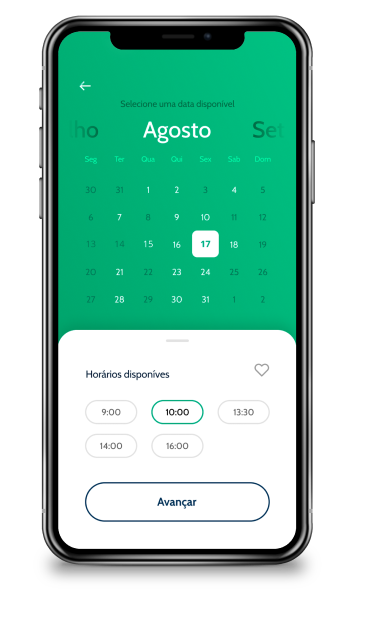
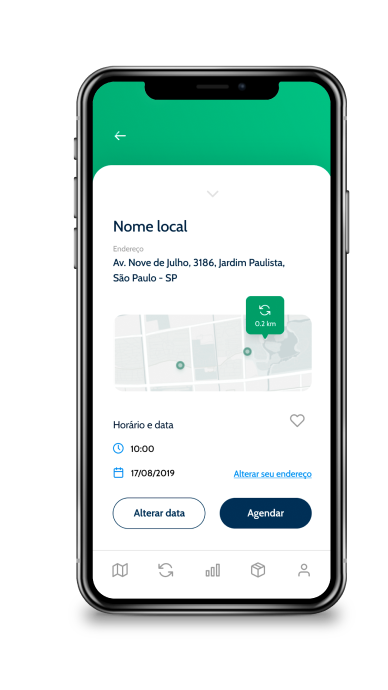
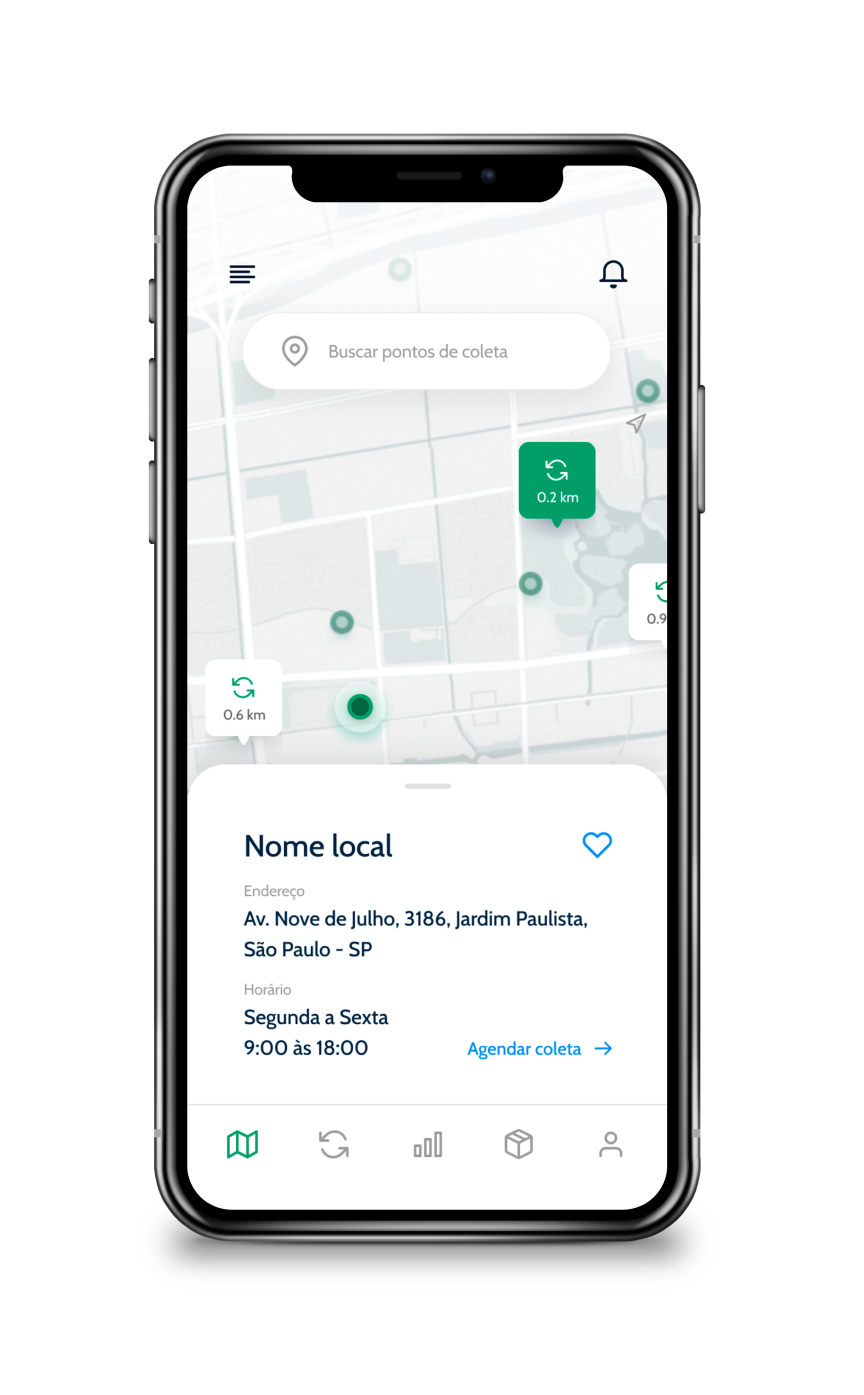
The Concept
Be.Cycle's value proposition is a rewards program that gives points for those who recycle and also offers content to educate and raise awareness about best recycling practices.
When registering in the app, the user informs whether he lives in a condo or house. Therefore, the criteria for accounting for profiles are different. Users who live in a condo are rewarded with 1 point for every 10 recyclable items they separate for pickup, limited to 2 points per week (per apartment).
If users reach 500 points by the end of the month, their score can be converted into a discount on their building fee (up to 10%), or residents can opt for a revitalization in the building’s common areas when their pooled scores reach 5,000 points.
Users who live in houses are rewarded with 1 point for each recyclable item they separate for pickup, limiting it to 20 points per week (therefore 20 items). If the user reaches 80 points by the end of the month, the score can be converted into a discount coupon in products from partner supermarkets (up to 30%). In addition, the user can also convert their points into discounts on utility bills.
The recycling Coop is responsible for checking and reporting the quantity (already converted into points) of items picked up in the month. Therefore, on pickup days users receive a notification via the app confirming delivery of recycling items.
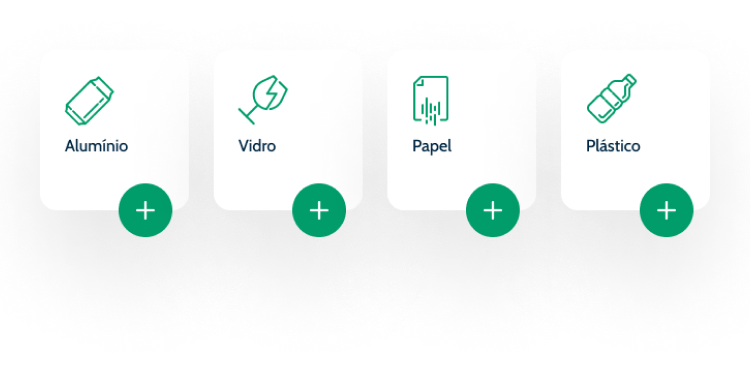
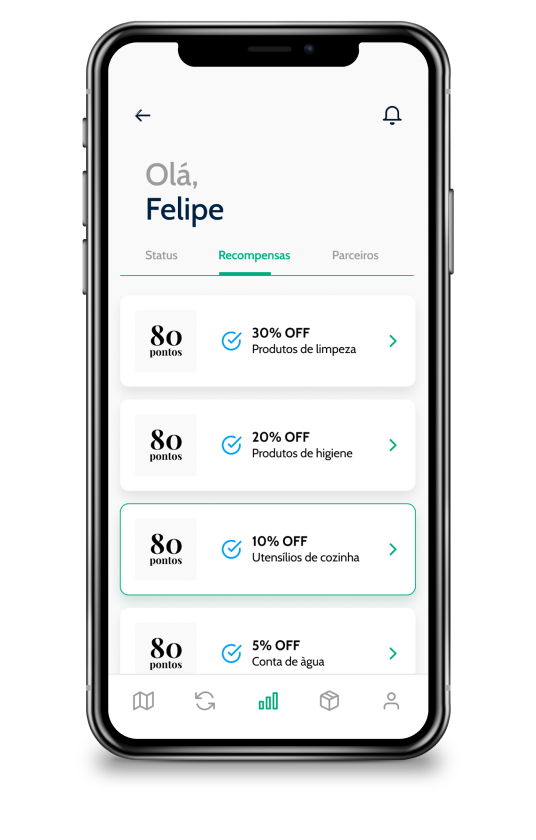
How do users redeem their points?
Users can check their score (condo or house) through the initial Dashboard in the app.
In the case of the condo, the conversion of points chosen will be defined by the number of residents who have opted for one or another benefit (therefore users select “discount on building fees” or “revitalization of common areas”).
For those who live in houses, the score conversion options will be available on the Dashboard.
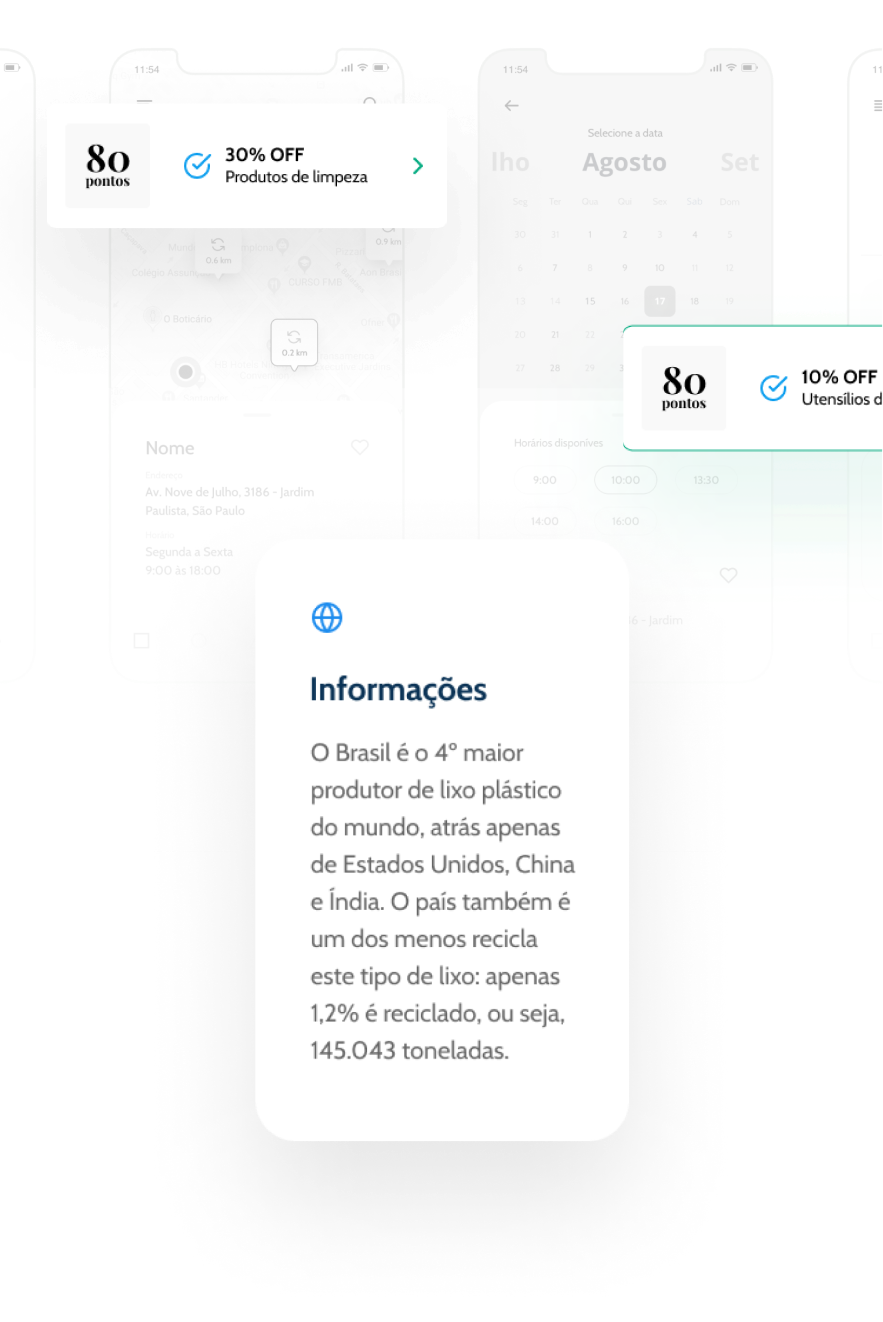
User Flow
The purpose of the flow is to ensure that the functionality is always visible to the user in a clear and objective manner, prioritizing the most used features in the app.
Therefore, I decided to use the bottom Menu in the app. When touching the upper Menu burger icon, the secondary functions are shown.
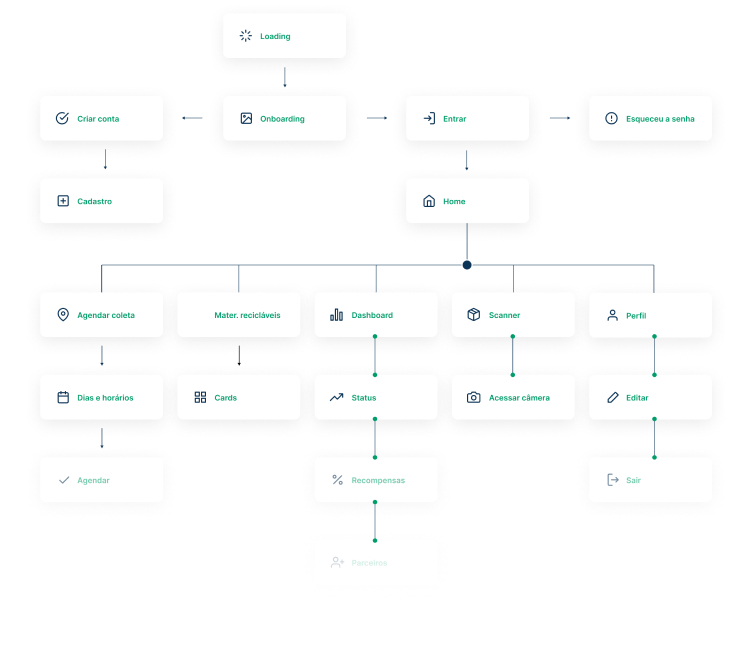
Packaging scanner
The user can use the App to consult information about the composition of materials through the scanner by going through the barcode on the packaging.
In addition to identifying the type of material, it is possible to know how to separate this material or packaging for recycling in the best way.
